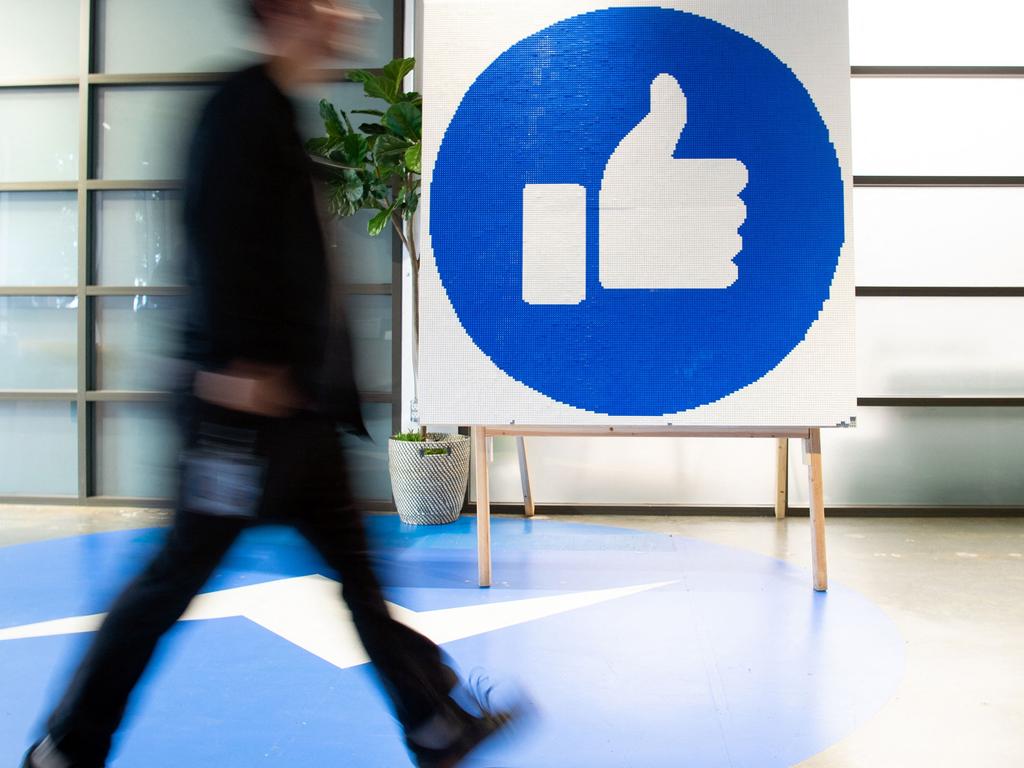
According to a new survey conducted by The Wall Street Journal, nearly two-thirds of American respondents – 64 per cent – said big tech firms such as Facebook and Twitter were harmful to society. Only 34 per cent said social media was helpful because it allowed all Americans to share their opinions.
With the benefit of hindsight, it may come to seem obvious that tech stocks were overvalued and that tech-related products such as NFTs (non fungible tokens) always had dubious real-world value. The problem with bubbles is that even if you know you’re in one, it can still be hard to predict when it will burst.
It looks as if it may be bursting now. Since the start of the year, Amazon stock has declined by 30 per cent, Tesla by 33 per cent, Meta (the company formerly known as Facebook) by 40 per cent, Zoom by 41 per cent, and Shopify by 75 per cent. A trillion dollars has been wiped off the cryptocurrency market.
After a party that has lasted for more than a decade, the tech industry is now facing its first real hangover since the famous dotcom crash of the early 2000s. Start-ups are laying off workers at a massive rate and investors are running for the door. Like the first dotcom bubble, this latest speculative bubble has been driven by a combination of low interest rates and a widespread fear of missing out (sometimes known as greed).
For a decade there has been so much investment money rattling around in the San Francisco Bay Area that it seemed as if all one had to do to grab some of it was to start a company with certain fashionable phrases in the pitch deck (“Web 2.0”, “web3”, “cloud”, “Software as a Service”, “Internet of Things”, “Machine Learning”).

Investors would fund what appeared to be promising companies, founders could pay themselves good salaries, and start-ups could operate for years without ever turning a profit. Venture-backed companies were assessed on how fast they were growing – that is, in acquiring new users – rather than how much money they made.
Trust in Silicon Valley has been in gradual decline for some years, but there have been two events that have marked a sharp juncture with the past. The first was the exposure of criminality at Theranos, the blood-testing company led by young female entrepreneur Elizabeth Holmes. And the second was Mark Zuckerberg’s pivot into the so-called metaverse while a whistleblower exposed just how much the company knew it was causing real-world harm.
Holmes was celebrated as the richest self-made female billionaire, and at its peak her company was valued at $US9bn. When The Wall Street Journal’s John Carreyrou investigated and exposed fraud at the company, he opened the world’s eyes to the reckless culture that could flourish inside these supranormal environments. Despite not having a background in science or engineering, and despite not having a prototype that actually worked, Holmes was entrusted with capital in the hundreds of millions of dollars – most of which was vaporised.
The second turning point was Zuckerberg’s pivot to the metaverse in October. At the same time, product manager Frances Haugen was exposing how Facebook was aware that its products are toxic for young girls, and increase anger among extreme users. She also revealed how the company was slow to shut down human trafficking, among many other problems.
Zuck’s announcement that Facebook/Meta was going to refocus on the artificial digital world of the metaverse instead looked like the company was running away from its problems.
It left a bitter taste in the mouth of tech observers. Instead of taking responsibility for the mistakes Facebook had made that caused real pain – such as blacking out the pages of charities, hospitals and emergency services in Australia – Zuckerberg’s attitude seemed to be that damage caused in the real world was simply not his problem.
Indifference to the real world with a preference for the digital is the hallmark of the tech industry’s culture. Nowhere is this indifference towards the real world more noticeable than on the streets of San Francisco, the city closest to the Valley, and the home of many tech workers and entrepreneurs.
San Francisco has four of the most expensive counties in the California area, but the streets are littered with used needles and human faeces. Diseases that cities have not seen since the medieval period, such as typhus, ravage the homeless population.
For many years, the tech industry and tech companies were beloved by the American public. Figures such as Steve Jobs were celebrated like rock stars, and Silicon Valley was associated with optimism and playfulness.
But all that has changed.
From addiction to social media, to crypto-scams, the downside of various technologies have never been more omnipresent. Ask any psychologist what they are currently dealing with in their offices, and they will tell you a large part of their day job is now helping people disconnect from their screens.
The apparatus of cheap money and optimism that has flourished in the valley for the past decade only works when there is widespread trust that it will all work out in the end. Investors don’t mind losing money on a few start-ups if they think they will hit the jackpot with the next Zuckerberg or Musk.
And they don’t mind funding a few frivolous ventures if one of them may change the world for the better. That belief can be maintained for a long time. Until one day it can’t.








Earlier this year, Facebook reported that it was losing users for the first time in its 18-year history. Elon Musk now appears eager to get out of his $US44bn ($61bn) Twitter deal. And Michael Burry, of The Big Short fame, has placed a $50m bet against Apple.